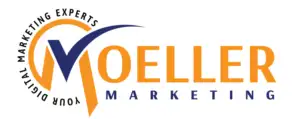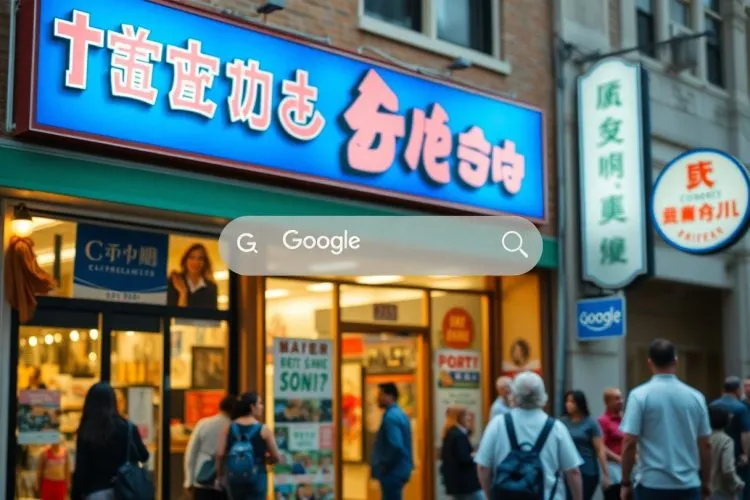
Many business owners in New Jersey underestimate the significant impact that website speed has on their online presence and search engine optimization (SEO). A slow-loading website not only frustrates potential customers but also adversely affects your search rankings and visibility. In today’s fast-paced digital world, you want to ensure that your website provides a seamless user experience. This post will explore how a slow website can harm your business and offer tips on improving its speed and performance for better SEO outcomes.

Key Takeaways:
- Website Speed directly impacts user experience; a slow site can lead to higher bounce rates and lost customers.
- Search engines like Google consider loading time as a ranking factor, meaning faster websites are more likely to appear higher in search results.
- Optimizing images and files can significantly improve website speed, leading to better engagement and retention.
- Utilizing caching solutions can enhance server response time, thus improving overall site performance.
- Regularly testing your website’s speed can identify areas for improvement, keeping your NJ business competitive online.
Understanding Website Speed
For any online business, website speed is an vital factor that can make or break your success. When users visit your site, their experience is directly influenced by how quickly the pages load. A faster website not only improves user experience, but it also enhances your search engine rankings, leading to increased traffic and potential sales. As an NJ business owner, understanding website speed is vital for remaining competitive in the digital landscape.
What is Website Speed?
Among various technical metrics, website speed refers to the time it takes for a webpage to fully load and become interactive for users. This encompasses various aspects, including the duration required for the server to respond, the speed at which content is downloaded, and how efficiently the browser renders that content. You want your website to load quickly to keep visitors engaged and decrease bounce rates.
Factors Affecting Loading Times
On your path to improving website speed, several factors can influence loading times. These factors include image sizes, the number of HTTP requests, server performance, and external scripts. By addressing these aspects, you can significantly enhance your site’s responsiveness and user experience. Any delays may deter users and directly affect your business’s bottom line.
Further understanding what affects loading times can empower you to make informed decisions. Key elements to consider include:
- Image optimization and format
- Minimizing HTTP requests
- Leveraging browser caching
- Choosing a reliable hosting solution
- Reducing server response time
Any improvements in these areas can lead to faster load times, resulting in a better user experience and higher search engine rankings.
The Impact of Slow Websites on SEO
Clearly, a slow website negatively impacts your SEO performance, leading to decreased visibility in search engine results. Search engines prioritize fast-loading pages, which means if your site takes too long to load, it may not rank as highly as your faster competitors. This can result in lost traffic and potential customers.
Search Engine Ranking Factors
Along with the site’s loading speed, several factors affect your search engine ranking:
- Page speed
- Mobile-friendliness
- Content quality
- User engagement metrics
- Backlink profile
After considering these factors, it’s evident that a slow website can significantly hinder your SEO efforts, making it harder for users to find your business online.
User Experience and Engagement
One key aspect that a slow website impacts is user experience and engagement. When your site is slow to load, users are likely to become frustrated and leave before even seeing what you offer.
Engine performance affects how visitors interact with your website. A fast-loading site encourages users to explore more pages, leading to lower bounce rates and longer session durations. Conversely, when users face delays, their likelihood of returning diminishes, affecting overall engagement and customer retention. Prioritizing your site’s speed not only enhances user experience but also positively influences your SEO, ultimately driving more traffic and sales to your business.
Analyzing Your Website’s Speed
Keep in mind that website speed is vital for user experience and SEO effectiveness. You can analyze your website’s speed by using various tools and techniques available online. By doing so, you’ll uncover areas that are impacting your site’s performance. To dive deeper, find out why a slow loading website can hurt your business, and take action to improve your site’s loading times.
Tools and Techniques for Assessment
Behind every successful website lies a solid foundation of speed assessment tools. Utilize platforms like Google PageSpeed Insights, GTmetrix, or Pingdom to evaluate your website’s loading speed. These tools provide detailed reports on various factors affecting speed and offer insights into areas for improvement. By regularly assessing your website, you can ensure optimal performance and retention of visitors.
Interpreting Speed Metrics
Speed metrics play a vital role in understanding your website’s performance. Speed metrics such as First Contentful Paint (FCP), Time to Interactive (TTI), and Largest Contentful Paint (LCP) inform you about how quickly your site responds to users. Analyzing these metrics helps identify bottlenecks and areas needing attention, so you can implement changes that enhance your site’s speed.
Indeed, understanding speed metrics allows you to make informed decisions about your website’s performance. For instance, if your TTI is significantly high, it indicates that users are experiencing delays before they can interact with your site. This insight enables you to optimize scripts, reduce server response times, and ultimately improve user engagement. By focusing on these metrics, you can foster a faster, more efficient website that meets the expectations of your visitors.
Strategies to Improve Website Speed
Your website’s speed is vital for user experience and search engine ranking. To enhance it, consider using a content delivery network (CDN), optimizing images, and minimizing HTTP requests. Additionally, ensure that your web hosting service is reliable and fast. Regularly audit your site for performance issues to maintain optimal speed and keep visitors engaged.
Optimization Techniques
About enhancing your website speed, optimization techniques such as compressing files, leveraging browser caching, and reducing server response time can significantly improve loading times. Implementing these techniques not only streamlines your website’s performance but also minimizes user frustration, leading to better engagement.
Importance of Mobile Responsiveness
On today’s digital landscape, mobile responsiveness is vital for ensuring your website loads efficiently on various devices. With more users accessing websites via smartphones and tablets, optimizing for mobile helps reduce loading times and provides a seamless experience, ultimately impacting your SEO positively.
Further, as mobile search continues to rise, an unresponsive website can drive potential customers away. When your site is designed to adapt to different screen sizes, you enhance user experience, which can reduce bounce rates and improve audience engagement. Search engines like Google prioritize mobile-friendly sites, so investing in mobile responsiveness not only helps retain visitors but also boosts your visibility in search results.
Local SEO and Website Speed in NJ
All businesses in New Jersey should recognize that website speed directly impacts local SEO rankings. A faster website enhances user experience and decreases bounce rates, which search engines may interpret as a signal of quality. Improving speed can elevate your site in local search results, leading to increased visibility and potential customers. For more insights, check out Speed Matters: How Your Website’s Page Speed Can ….
Targeting New Jersey Audiences
On optimizing your website speed, you attract and retain a local audience more effectively. New Jersey consumers expect quick loading times, and a speedy site can help you cater to their needs. Additionally, being relevant locally not only improves user experience but also drives more organic traffic from search engines, setting your business apart.
Competitive Advantage in the Market
Competitive businesses leverage website speed as a strategic advantage. A swift website enables users to navigate easily, leading to higher engagement and conversion rates. When your competitors are slower, having a fast-loading site places you in a favorable position, potentially resulting in more leads and sales.
Plus, maintaining a quick website allows you to stay ahead of your competition. Customers are more likely to choose your services if their experience is seamless and enjoyable. By improving your website speed and focusing on local SEO, you can enhance your presence in the market and secure your business’s place in New Jersey’s bustling landscape.

Common Mistakes to Avoid
Despite the importance of website speed for SEO, many businesses make common mistakes that can severely impact their online presence. Failing to optimize images, using outdated themes and plugins, and neglecting mobile optimization can slow down your website and hurt your ranking in search engines. By addressing these issues proactively, you can significantly improve your site’s performance and user experience.
Neglecting Regular Updates
By keeping your website’s software, themes, and plugins outdated, you risk not only slower loading times but also potential security vulnerabilities. Regular updates are necessary to ensure optimal performance and compatibility with new technologies. This practice not only prevents speed issues but also improves overall user experience.
Overlooking Local SEO Factors
Before entering into technical SEO improvements, ensure you pay attention to local SEO factors that can connect your business with nearby customers. It’s important to optimize your Google My Business listing, gather customer reviews, and include local keywords on your website. Failing to do so can limit your visibility in local search results, making it difficult for potential clients to find you.
- Optimize your Google My Business listing.
- Gather positive customer reviews consistently.
- Utilize local keywords in your website content.
The more localized your SEO efforts, the more attractive you become to potential customers in your area. Knowing these factors can significantly enhance your business’s online performance.
Conclusion
Ultimately, ensuring your website loads quickly is vital for your NJ business’s online success. A slow website not only frustrates visitors but also negatively impacts your search engine rankings. By prioritizing website speed, you enhance user experience, reduce bounce rates, and improve your visibility to potential customers. As you work on optimizing your website, keep in mind that every second counts in capturing the attention of your audience and staying competitive in today’s digital landscape.
FAQ
Q: How does website speed affect SEO rankings?
A: Website speed plays a significant role in SEO rankings because search engines prioritize user experience. Faster loading times lead to lower bounce rates, meaning visitors are more likely to stay on the site and engage with content. Search engines like Google use site speed as one of the ranking factors, so a slow website can negatively impact your visibility in search results.
Q: What are some common factors that contribute to slow website speeds?
A: There are several factors that can lead to slow website speeds. These include large image files, heavy use of JavaScript and CSS, a cluttered codebase, excessive server response times, and lack of efficient hosting services. Identifying and addressing these issues can help improve the overall loading time of your website.
Q: How can I measure my website’s loading speed?
A: You can measure your website’s loading speed using various online tools such as Google PageSpeed Insights, GTmetrix, or Pingdom. These tools provide detailed reports on performance, including load times and suggestions for improvement. Regularly testing site speed can help you monitor changes and identify potential issues.
Q: What are some strategies to improve website speed for my NJ business?
A: To improve website speed, consider optimizing images and other media files, minifying CSS and JavaScript, utilizing browser caching, implementing a Content Delivery Network (CDN), and choosing a reliable hosting provider that meets your business needs. Additionally, ensure your website design is clean and efficient, which can further enhance loading times.
Q: Can a slow website impact conversions and user engagement?
A: Yes, a slow website can significantly impact conversions and user engagement. Research indicates that users are likely to leave a site if it takes more than a few seconds to load. This can lead to missed opportunities for sales and reduced customer satisfaction. Fast-loading sites encourage users to explore more and can lead to higher conversion rates.





